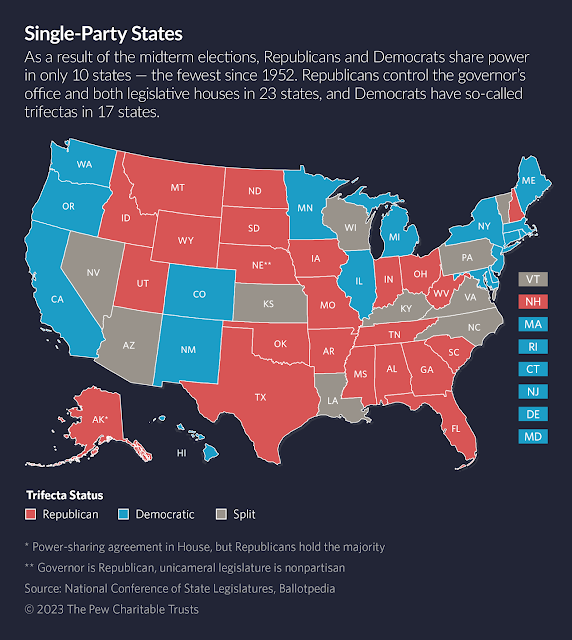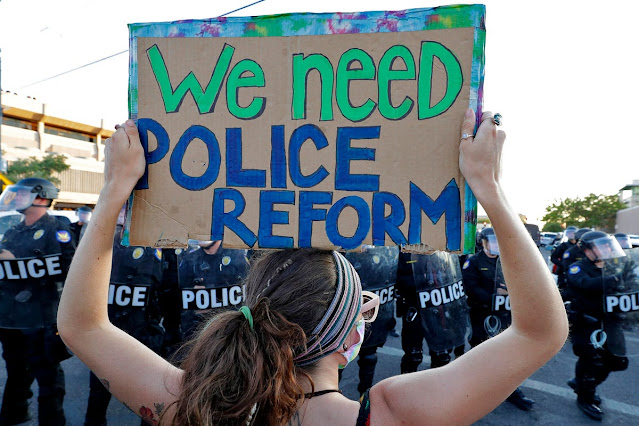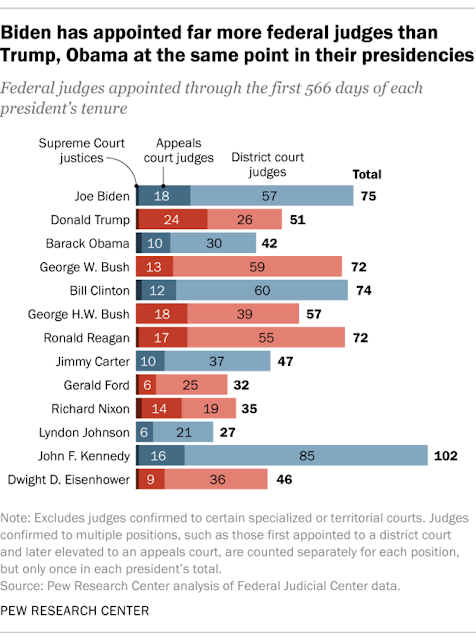The story about Trump's collusion with the Russian government has been in the news a lot lately. Most recent is a piece from Charlie Savage, Adam Goldman, and Katie Benner about the Durham investigation. It is clear now that the special counsel appointed by former Attorney General Barr was unable to prove Trump's claims that Russiagate was a hoax. But as the authors note, "the main thrust of the Durham inquiry was marked by some of the very same flaws...that Trump allies claim characterized the Russia investigation."
The authors also demonstrate that the arc of the Durham investigation was initially an attempt to prove that the Russia probe was a CIA operation targeting the Trump campaign. When they got nowhere with that one, they switched to: "let's blame it on Hillary Clinton!"
Mr. Barr and Mr. Durham did not shut down their inquiry when the search for intelligence abuses hit a dead end. With the inspector general’s inquiry complete, they turned to a new rationale: a hunt for a basis to accuse the Clinton campaign of conspiring to defraud the government by manufacturing the suspicions that the Trump campaign had colluded with Russia.
When they didn't get anywhere with that one, Barr admitted that the whole thing was just a propaganda stunt.
Mr. Barr...suggested that using the courts to advance a politically charged narrative was a goal in itself. Mr. Durham “accomplished something far more important” than a conviction,...asserting that the case had “crystallized the central role played by the Hillary campaign in launching as a dirty trick the whole Russiagate collusion narrative and fanning the flames of it.”
In other words, while Barr and Durham couldn't prove their case in court, they used the investigation to advance their "politically charged narrative."
Earlier this week we learned that Charles McGonigal, a former FBI counterintelligence chief, has been accused of working with Oleg Deripaska - a Russian/Ukrainian oligarch with close ties to Putin. There are a lot of questions swirling about what McGonigal's role was in the Russia/Trump investigation. But I would simply point out that, beginning in October 2016, he led the counterintelligence efforts at the FBI's New York Field Office...the one that James Comey described as having a cadre of senior people "who have a deep and visceral hatred of Secretary Clinton."
Just three days before that news broke, we heard that not only had a federal judge thrown out Trump's suit against those he blamed for the "Russiagate hoax," the former president and his lawyer have to pay a $1 million fine for filing it in the first place. The judge made it clear that Russiagate is no hoax.
Middlebrooks described the legal complaint as “a hodgepodge of disconnected, often immaterial events, followed by an implausible conclusion.”...
The judge also said Trump’s suit misrepresented the 2019 report by former special counsel Robert S. Mueller III by saying it had exonerated him....
“The Plaintiff consistently misrepresented and cherry-picked portions of public reports and filings to support a false factual narrative,” Thursday’s judgment found.
Finally, it was just three weeks ago that the New York Times published a piece by Jim Rutenberg titled, "The Untold Story of ‘Russiagate’ and the Road to War in Ukraine." Rather that breaking ground with new revelations, this one takes what we're learning today and uses that to help inform us about what happened in the past. In doing so, it becomes clear that the fate of Ukraine played a central role in the collusion between the Russian government and the Trump campaign.
Putin’s assault on Ukraine and his attack on American democracy have until now been treated largely as two distinct story lines...
To a remarkable degree, the long struggle for Ukraine was a bass note to the upheavals and scandals of the Trump years, from the earliest days of the 2016 campaign and then the presidential transition, through Trump’s first impeachment and into the final days of the 2020 election.
Rutenberg focuses mostly on Paul Manafort's ties to Ukraine - and specifically his connections to Oleg Deripaska and Konstantin Kilimnik, a Russian agent. Central to that story is the so-called "Mariupol Plan," which was then being shopped to the Trump campaign as a plan for peace in Ukraine. It involved bringing former Ukrainian President Yanukovych back from exile in Russia to be the head of the war-torn eastern regions of Donetsk and Luhansk. IOW, it would put Putin's puppet in charge of the areas Russia wanted to claim as their own.
That's the plan Kilimnik passed off to Manafort as the quid pro quo for Moscow's assistance in getting Trump elected. But to demonstrate how deeply Ukraine's fate was embedded in Russiagate, there were actually two "peace plans" being floated to the Trump campaign. The other one arrived via Michael Cohn - Trump's bagman.
I had forgotten that Cohn had long and deep ties to Ukraine. As Josh Marshall documented here, he is not only married to a Ukrainian American, he had forged deep ties with Ukrainian businessmen long before he even started working for Trump. I have no idea whether those ties carry any significance in the Trump/Russia probe, but given the central role that country has played in all of this, it's worth keeping in mind.
Of course, the election of Zelensky in Ukraine and Biden in the U.S. eventually sent both of those "peace plans" up in flames. The Russian full-scale invasion of Ukraine a year ago was the result. Even now, Putin's apologists in this country are suggesting that Ukraine make concessions of sovereignty similar to those contained in the two plans, which the nation’s leaders categorically reject.
To summarize all of this, the past few weeks demonstrate two things (1) Russiagate was never a hoax, and (2) we still haven't gotten to the bottom of this story - a major national security threat - yet.


















